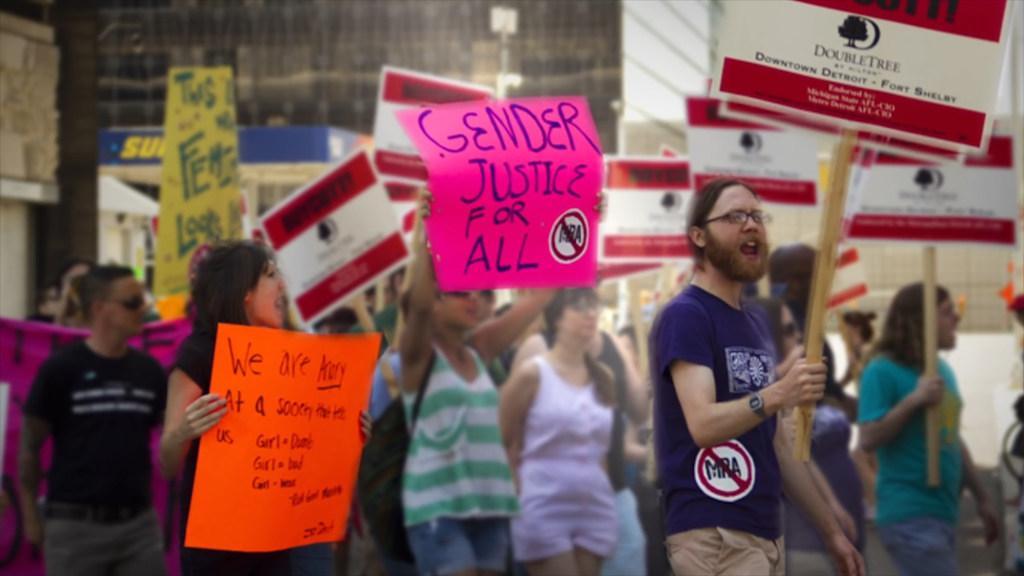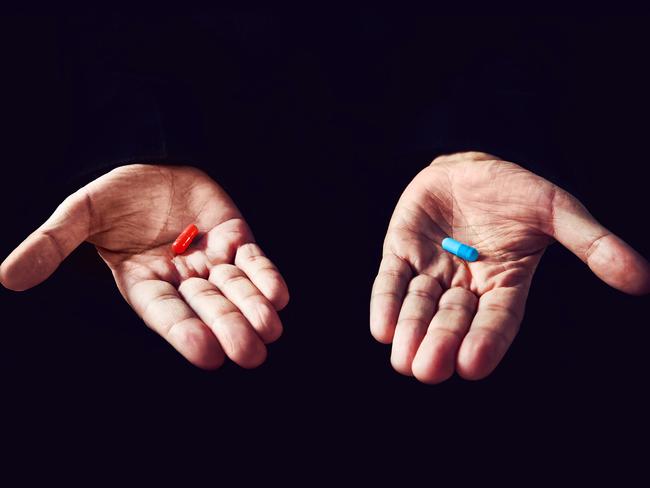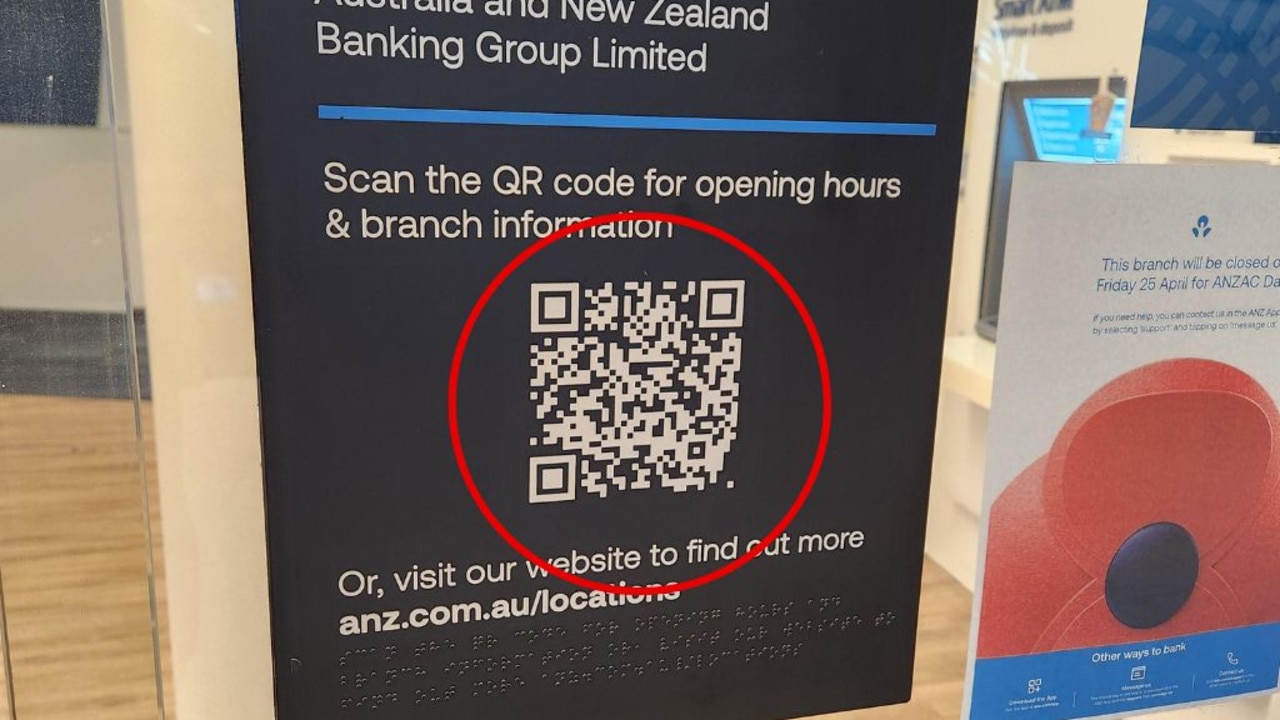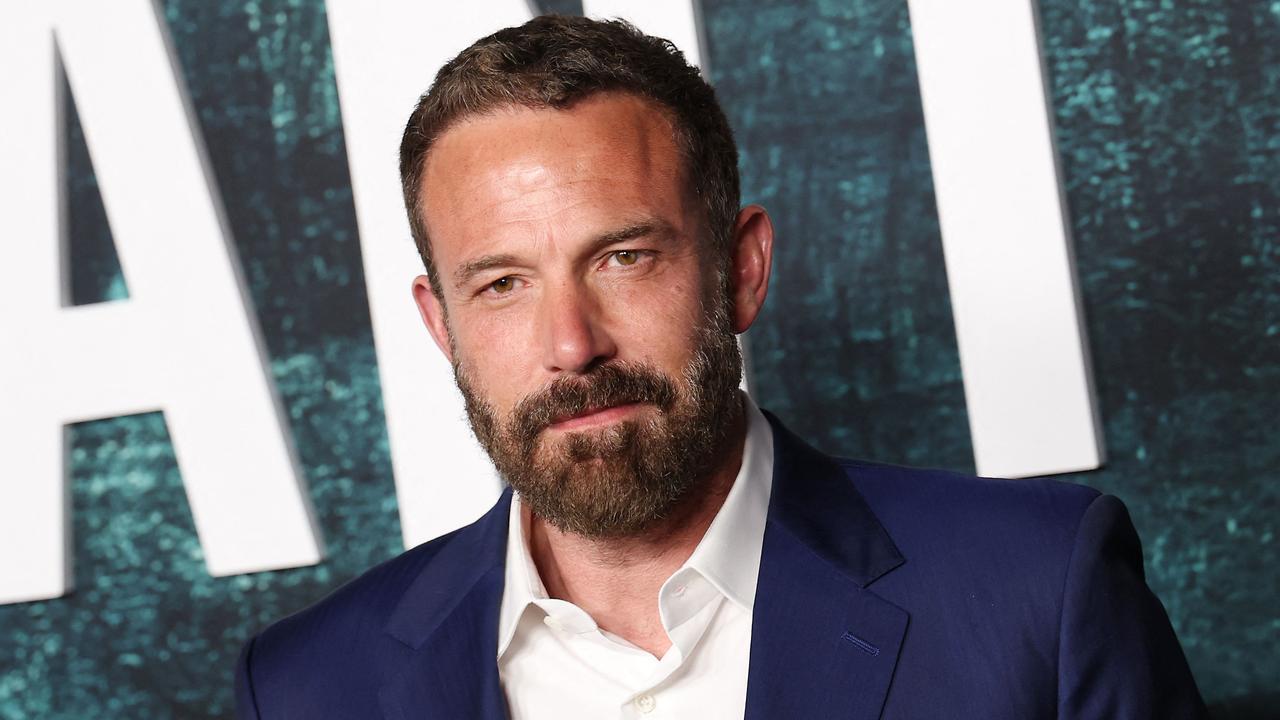What is a ‘red pill man’ and why don’t women want to date him?
There are more women than men in Australia – but despite the dating pool inequity, there’s a growing number of single guys women refuse to date.

Lifestyle
Don't miss out on the headlines from Lifestyle. Followed categories will be added to My News.
There are over 330,000 more women than men in Australia – but despite the dating pool inequity, there’s a growing number of single guys women will never pursue.
These undatable men are those who subscribe to the “red pill” notion, an alarming subculture that perpetuates a societal hatred against women by opposing feminist narratives and emphasising traditional gender roles.
The term originates from the 1999 film ‘The Matrix’, where the lead character is offered a choice between a red pill and a blue pill. The red pill symbolises awakening to harsh realities, while the blue pill represents remaining happy, but ignorant.
Men’s rights activism have taken the “red pill” concept to represent a similar awakening to what they perceive as the true nature of society and gender relations.
These modern misogynists often come together online in a virtual space dubbed the “manosphere”, a collective of various digital communities promoting warped views on masculinity.
People found within the manosphere include men’s rights activists and incels, a group of heterosexual men who blame women and society for their lack of romantic success and who openly admit to “loathing” women for not sleeping with them.

While its easy to brush off the rise of mainstream misogyny as internet fodder, or a sensationalised storyline from a TV show, data shows it’s seeping into every corner of culture, from social media feeds to Aussie classrooms.
The disturbing rise in troubled men is something “Australians should be worried about”, warns Tarang Chawla, a vocal advocate for gender equality and an anti-violence campaigner.
“The rise of red pill culture and manosphere thinking isn’t just edgy internet banter – it’s leading to real-world harm,” he told news.com.au.
“At its core, it frames gender equality as this kind of threat and paints women as either being manipulative or lesser.
“This normalises misogyny and creates this culture where violence against women is excused, minimised, or even justified. Australians should be concerned.”

Mr Chawla, whose sister Nikita was just 23 years old when her husband murdered her in a jealous rage in 2015, added that these “distorted” beliefs create a “dangerous” space for women to exist in.
“The idea that men are universally oppressed or that women only pursue wealthier men or a certain kind of man reinforces this toxic, adversarial view of gender that is pitting people against each other,” he said.
“When some men feel entitled to women’s attention but believe they’re being denied it due to a ‘rigged system,’ resentment builds.
“And resentment, when mixed with entitlement and dehumanisation, becomes a risk factor for violence.”
But while these groups grow and spread vitriol, women are using the internet to warn each other: “Beware of the red pill guy.”
One feminist social media user who dedicates her page to calling out male content creators spewing red pill ideology recently captioned one of her clips, “Don’t date or take relationship advice from these males”.
Others are sharing the moment they realised their other half had “swallowed the red pill”, with many revealing it caused the relationship to come to an end.
“These red pill guys have gotten out of hand,” one shared in an emotional video.


But who are these men and how can women spot them?
Melbourne psychologist Carly Dober said research shows some men are more “vulnerable” to the harmful ideology than others.
“Systemically, some young men feel they are being culturally left behind academically and professionally, with wages and jobs not as easy to access and the typical markers of adulthood (home ownership and procreation) more difficult or impossible to access compared to previous generations,” she told news.com.au.
“Women also have far more agency than previous generations and are educated, employed, and have more choice with how they spend their lives.
“The messaging from these red pilled communities often ignores systemic drivers of inequality and seduces men with simple but incorrect answers to these complex issues.
“Some men also already endorse antifeminism and anti-equality messaging and behaviour, so this community can be a logical next move for them.”


Mr Chawla, who recently became the safety advocate for popular dating app Bumble, said that even though the number of men subscribing to extreme misogyny ideology is on the rise – singles overwhelmingly want to date with consideration.
“96 per cent of Gen Z want a respectful dating experience, and 95 per cent believe dating apps should be taking action against bad behaviour before it even starts,” he explained.
“That should tell us everything we need to know, people are actively seeking safer, more values-aligned spaces to connect.”
However, he said we can’t ignore that there is a “disconnect that is eroding trust”.
“Ask women, and they’ll tell you – they’ve met these men. They’ve dated them. They’ve blocked them.
“By pretending this is rare, we dismiss women’s experiences and ignore how widespread these beliefs have become, especially online. It’s leading to a breakdown in trust, where many women feel like they have to be on guard, even in romantic contexts.”
Ms Dober, who owns Melbourne’s Enriching Lives Psychology clinic, added: “This ideology is harmful to all of us, including men. Violating traditional masculinity norms can lead men to experience more depression and suicide, and this ideology needs to be seen as extreme and stamped out.”
More Coverage
Originally published as What is a ‘red pill man’ and why don’t women want to date him?





